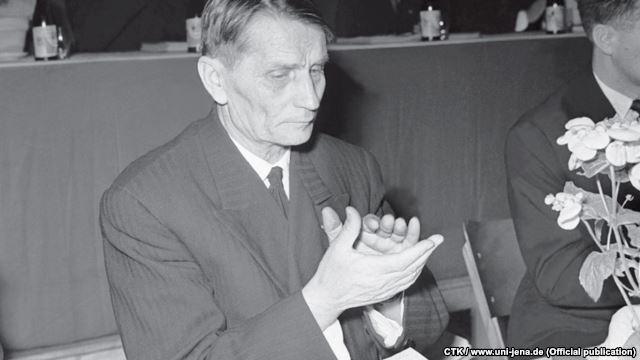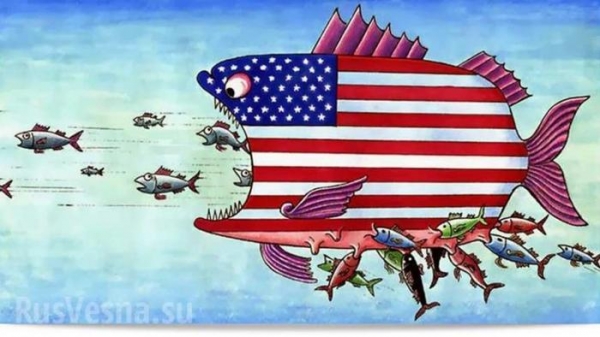
“Man”, “aunt”, “young man” — which only expressions concerning ourselves we have not heard in my life! TER decided to look into the peculiarities of Russian culture etiquette and find out why the Russians can not become “gentlemen” and “ladies”.
The kids call 17-year-old girls “aunts”, workers in overalls refer to men in formal suits just outstanding – “a man”, and pretended to be young ladies honored for the compliment thrown to them “girl” these paintings we are witnessing is, without exaggeration, every day.
This liberty in addressing to strangers does not bother anyone, and I think she even became a special part of the Russian mentality.
The absurdity of such situations seem funny and even widely used in popular works – remember just how the whole country laughed at the Dating scene in a Soviet movie “Gentlemen of fortune”.
In everyday life as possible embarrassing situations related to the problem of the circulation, do not count. Everyone had to blush, once in the crowd of strangers and feeling the need for anyone to ask: in our time it is easy to insult the man, not guessing with age, and even with the floor.
We hesitate, get flustered, but did not dare to speak. And the reason is not rudeness and ignorance of the individual, but in a much more complex and global phenomenon – the absence of a full culture that is responsible for that, as they say with strangers. Of course, often such difficulties are faced by those people whose professions are directly related to communication.
“I really don’t know how to call unknown people to avoid being hurt them and not to offend, says the Bank employee Ekaterina – a day to me for advice asked an elderly woman, and I called her grandmother. She got angry and gave a typical sentence: “who are you calling grandma?”. I felt very awkward, and while I can understand her outrage. But how else could I access it without knowing the name and patronymic?
And it all could have turned out differently. For example, in England, where, conventionally, any young lady called “lady”, and the man is proud of “sir” and not to lose, the probability to hurt a person’s awkward word is practically reduced to zero. Here the question arises: why tie treatment not only to gender but also to age? Why not just use treatment similar to British? To understand helped us linguist Anton Spitsyn:
“In the West since ancient times, there was much more formality associated with ranks and titles. Of course, we ruled by emperors, but Russia was an agrarian country, therefore, among the common people all these high treatment is not caught because of simple lack of need. Moreover, the rulers themselves often did not require special treatment. Peter I, for example, suffered when he was addressed “You”: “Worthless one person for several to check”. People are just not used to respectful titles, and so when after a lot of repression of the lower strata were in power, they had no reason to change the culture of their behavior. Before the rule got rough and not the most educated people, so these were born rude treatment is “female”, “male”, and so on. A gradation on age, I think, should be seen as a kind of alternative to the differences between the simple “Mr” or the more respectful “sir” and “Lord” awkwardly altered in our manner”.
It’s even harder to get out of a situation when you need to talk to the interlocutor, observing respect for his position, to consider his social status. The relevant expressions for this are not used, and, of course, there are my reasons. About them tells the doctor of historical Sciences Alexey Antoshin:
“A culture of respectful treatment to the interlocutor, especially a stranger, has changed dramatically in the Soviet era. Before the Revolution, society had a clear social stratification, and, of course, speak to the man followed, taking into account his position. To higher ranks, addressed “Your honor”, lower – “Your honor”. Often in literature we find cases where an ordinary employee name is “honor”, and it becomes clear: the speaker just wants to flatter him. This is the artistic means now it is clear not all. After the Revolution all the usual social order collapsed, and people will forever miss the familiar classification. It is not surprising that in such conditions formed the ignorance and rudeness – of the people was not simple”.
Soon, the USSR built the iron curtain, and even then people had a clear message: everyone needs to go with the word “comrade,” and sound proud and dignified.
Words like “sir” and “Madam”, despite the fact that they are common, acquired a negative connotation – after all, they used the West. The collapse of the Soviet Union again took the people in confusion and once again undermined the already existing structure of society. Undoubtedly, the modern culture due to past historical events, and we in the present have to deal with all the remnants of our repression. Now turn to strangers, especially older ones, is very difficult: they cannot be called “masters”, making sure first that they are not “comrades”. For people belonging to specific views, it will be offensive.
At least until our people decide who they want to be masters, fellows, or ladies and gentlemen, our rough and rustic expression will not disappear.
Source: Ekb-room.ru








